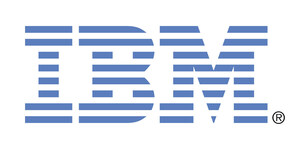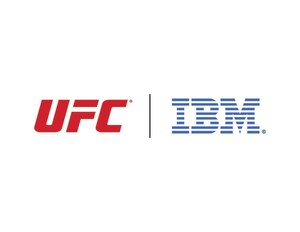NEW YORK, Jan. 10, 2020 /PRNewswire/ -- IBM (NYSE: IBM) released a new study on global consumer trends, revealing that now, more ever before, the importance of brand purpose surpasses cost and convenience for today's shoppers. The research, developed in partnership with the National Retail Federation (NRF), polled nearly 19,000 consumers from 28 countries, across all demographics and generations, from Gen Z to Baby Boomers (ages 18-73), to understand how individual purchasing decisions are evolving and help today's consumer-facing companies navigate trade and commerce complexities.
One-third of all consumers today will stop buying their preferred products if they lose trust in the brand, and one-third of consumers have already stopped purchasing their longtime, favorite brands in 2019. As such, consumers are prioritizing those that are sustainable, transparent and aligned with their core values when making these decisions. They're willing to pay more, and even change their buying habits, for brands that get it right.
At the same time, buying behaviors have changed drastically. Consumers shop whenever and wherever the mood strikes them - usually while doing something else. Whereas impulse buying was once the norm, impulse shopping is the current norm, 7 in 10 consumers now shop in "micro-moments" – or shop simultaneously while conducting their daily tasks.
With a proliferation of brands and products at shoppers' disposal anywhere at any time, corporate values now outweigh product costs and convenience. Consumers of all ages and incomes pay much higher premiums for products aligned with their personal beliefs. On average, 70 percent of purpose-driven shoppers pay an added premium of 35 percent more per upfront cost for sustainable purchases, such as recycled or eco-friendly goods. 57 percent of them are even willing to change their purchasing habits to help reduce negative environmental impact. 79 percent of all consumers today state it is important for brands to provide guaranteed authenticity, like certifications, when they're purchasing goods. Within this group, 71 percent are willing to pay an added premium – 37 percent more – for companies offering full transparency and traceability.
"Transparency constitutes proof that an organization and its offerings are what the company claims to be – a way to earn consumers' trust. Brands can leverage data and integrate blockchain technologies as brand differentiators that effectively provide transparency and traceability – which will also boost profits as the study shows that shoppers willingly pay more if a retailer can demonstrate provenance," said Luq Niazi, Global Managing Director, IBM Consumer Industries.
The modern-day marketplace has created a new generation of customers that come with higher demands and bigger challenges that retailers must face in 2020, and the findings reveal major shifts in consumer buying behaviors that require a fundamental change in how retailers and consumer packaged goods brands build brand affinity.
With cost no longer the deciding force for consumers, IBM recommends the following for retailers to regain competitive market share in new ways:
Earn consumers' confidence through transparency and traceability: With "micro-moments" on the rise, companies must go beyond simply offering convenient or quicker services to gain customers' trust – consumer brands now need to differentiate themselves by offering convenient, quicker access to detailed information previously unnecessary, such as how the products are manufactured, quality of ingredients, if it is sustainable or ethically sourced, and under what conditions.
Terra Delyssa, a Tunisian olive oil producer, is one such brand which is already incorporating traceability into its data and products. At NRF, we will unveil that Terra Delyssa is using blockchain to create a provenance record that allows consumers to trace olive oil from retailer back to farm using a QR code or lot number.
Measure sustainability through economic impact: Reducing environmental impact now goes beyond recyclable packaging or reducing carbon footprints. Purpose-driven brands must also help build a sustainable, circular economy for future generations. In order to preserve resources and eliminate waste in today's commerce-driven landscape, sustainability must be integrated and measured end-to-end and across the entire supply chain for CPG manufacturers.
IBM Sterling continues to expand its open developer ecosystem to provide retailers with targeted innovation and experimentation. Through IBM Sterling's expanded partnerships with Salesforce, Sapient and Project 44, IBM is helping clients solve complex supply chain challenges, resulting in seamless customer engagement and full visibility into the entire retail journey – from order creation and delivery, shipment lifecycle management and returns optimization.
Deliver value through more flexibility, not more products: As digital interactions continue to influence the way consumers shop, retailers need to innovate in store, to give a consistent brand experience across all channels. The challenge however for many retailers is the ability to rapidly deploy and integrate new capabilities with their existing store technology environment to allow them to continuously deliver on consumer expectations.
To help retailers manage these issues and accelerate store innovation, at NRF 2020 IBM is Launching "Store in the Cloud" - a suite of pre-integrated capabilities from IBM in collaboration with its developer ecosystem that includes Flooid (formerly PCMS), Opterus, RelevanC, Trax and more.
Designed for retail and built on open hybrid multi-cloud technologies from IBM and Red Hat, Store in the Cloud is a customizable, cost-effective platform that leverages AI, IOT and Blockchain capabilities. This allows retailers to quickly extend digital experiences into physical stores, provide consistent personalized interactions, improve customer fulfillment, empower store associates with intuitive apps, enable consumers shop everyway they choose and better manage store costs.
"Shoppers today show an increased willingness to pay premiums for products that align with their values. The study's findings show that today's retailers need to be proactive in evaluating and understanding what drives current and future core buyers while still boosting margins for their business," said Mark Mathews, Vice President, Research Development & Industry Analysis, NRF.
IBM will be showcasing its new retail capabilities at Booth #3521 during NRF 2020 from January 12-14.
For further information on IBM at NRF, please visit: https://www.ibm.com/industries/retail-consumer-products
Access the full IBV and NRF study findings here: https://ibm.co/consumer-2020
About IBM Institute for Business Value
The IBM Institute for Business Value (IBV), part of IBM Services, develops fact-based, strategic insights for senior business executives on critical public and private sector issues. Follow @IBMIBV on Twitter, and for a full catalog of our research or to subscribe to our newsletter, visit: www.ibm.com/ibv
Media Contact
Leslie Park
IBM External Relations
[email protected]
917-421-8933
SOURCE IBM

Related Links
WANT YOUR COMPANY'S NEWS FEATURED ON PRNEWSWIRE.COM?
Newsrooms &
Influencers
Digital Media
Outlets
Journalists
Opted In





Share this article